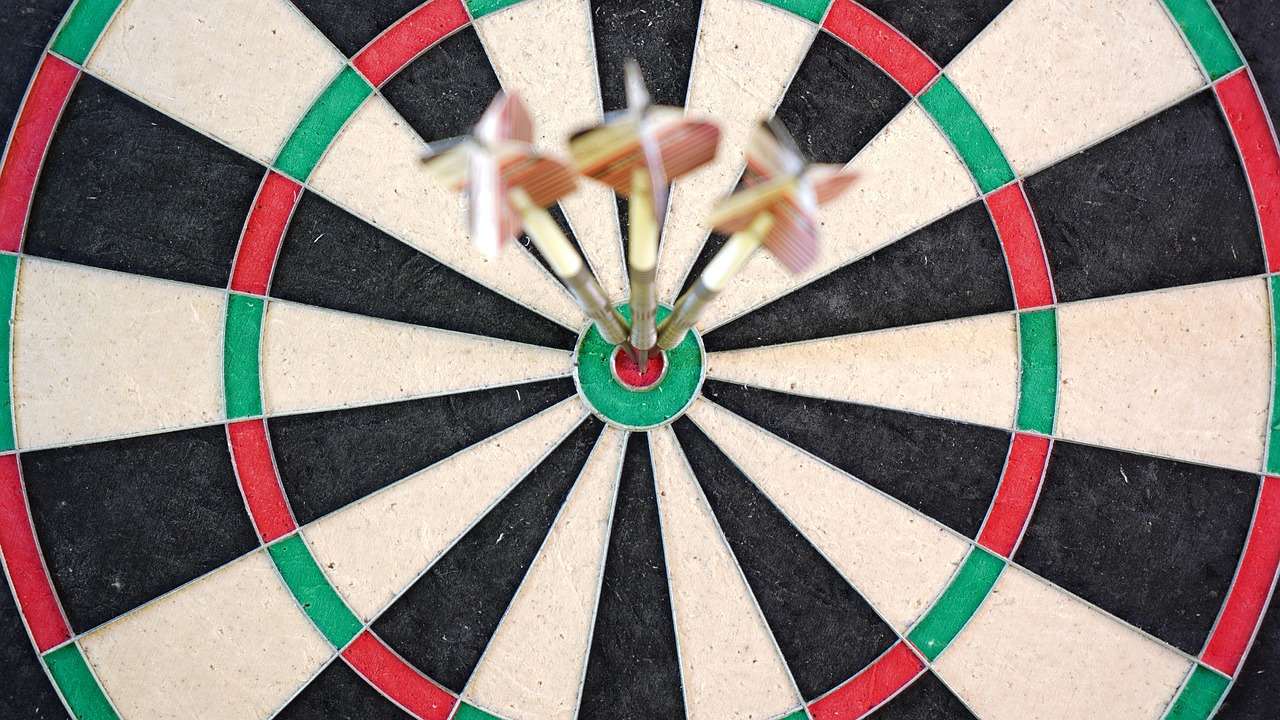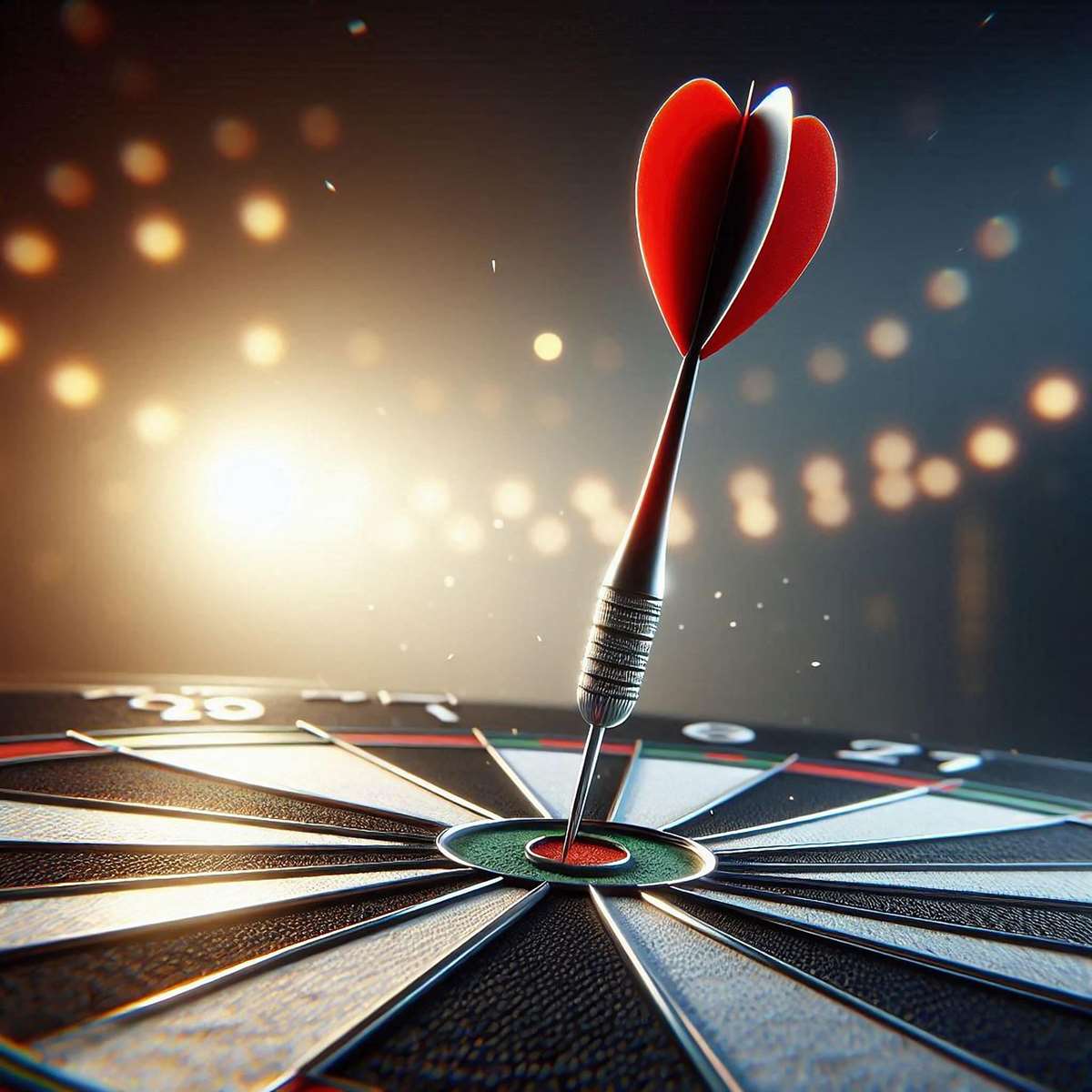Fractional Odds Darts Explained simply refers to the way odds are presented when betting on darts, showing the potential profit relative to your stake. Understanding these odds is crucial for making informed betting decisions, and this article will break down how to interpret them and calculate your potential winnings, along with covering other important aspects of darts betting.
⚠️ Still Using Pen & Paper (or a Chalkboard)?! ⚠️
Step into the future! The Dart Counter App handles all the scoring, suggests checkouts, and tracks your stats automatically. It's easier than you think!
Try the Smart Dart Counter App FREE!Ready for an upgrade? Click above!
Decoding Fractional Odds Darts Explained
When it comes to darts betting, you’ll often encounter fractional odds. These odds, expressed as fractions (e.g., 2/1, 5/2, 1/4), represent the potential profit you can earn for every unit you stake. So, if you see odds of 2/1, it means you stand to win £2 for every £1 you bet, in addition to getting your initial stake back. This method of presentation is very common, especially in the UK and Ireland.
Understanding the Numerator and Denominator
The fraction is divided into two parts: the numerator (the number on top) and the denominator (the number on the bottom). Here’s how they work:
- Numerator: Represents the profit you will receive if your bet wins.
- Denominator: Represents the amount you need to stake to potentially win the profit indicated by the numerator.
For example, if the odds are 5/1, you need to stake £1 to potentially win £5 profit, plus your original £1 stake back.

Calculating Potential Winnings with Fractional Odds
Calculating your potential winnings is straightforward once you understand the structure of fractional odds. Here’s a simple formula:
(Stake x Numerator) / Denominator = Profit
Total Return = Profit + Stake
Let’s look at a few examples:
- Example 1: Odds of 3/1, stake of £10. Profit = (£10 x 3) / 1 = £30. Total Return = £30 + £10 = £40.
- Example 2: Odds of 1/2, stake of £20. Profit = (£20 x 1) / 2 = £10. Total Return = £10 + £20 = £30.
- Example 3: Odds of 5/4, stake of £8. Profit = (£8 x 5) / 4 = £10. Total Return = £10 + £8 = £18.
Converting Fractional Odds to Decimal Odds
Sometimes, you might want to compare fractional odds with decimal odds, which are more common in other parts of the world. Here’s how to convert:
Decimal Odds = (Numerator / Denominator) + 1
Using the examples above:
- 3/1 becomes (3/1) + 1 = 4.0
- 1/2 becomes (1/2) + 1 = 1.5
- 5/4 becomes (5/4) + 1 = 2.25
Decimal odds represent the total return for every £1 staked, including your stake.

Common Betting Markets in Darts
Beyond simply picking the winner, darts offers a variety of betting markets. Understanding these markets is essential for maximizing your betting strategy.
Match Winner
The most straightforward bet: simply predicting which player will win the match.
Correct Score
Predicting the exact final score of the match. This is a more difficult bet but offers higher odds.
Most 180s
Betting on which player will score the most 180s (three treble 20s) during the match.
Highest Checkout
Predicting which player will have the highest checkout (the final score needed to win a leg or set).
Handicap Betting
Giving one player a virtual advantage or disadvantage to even the odds. For example, you might bet on a player to win with a -2.5 leg handicap.

Strategies for Betting on Darts
While luck plays a role, successful darts betting involves research, analysis, and a disciplined approach.
Research Player Statistics
Analyze player statistics such as averages, checkout percentages, and 180s per leg. These metrics can provide valuable insights into a player’s form and consistency. You can also explore Darts Culture And Community Guide to learn more about the social impact of darts.
Consider Head-to-Head Records
Examine the head-to-head record between the two players. Some players perform better against certain opponents.
Follow Current Form
Keep track of players’ recent performances. Are they on a winning streak? Have they been struggling with injuries or personal issues? Building Local Darts League Club Guide can help if you’re involved with local league dart players.
Manage Your Bankroll
Set a budget for your darts betting and stick to it. Avoid chasing losses and only bet what you can afford to lose.
Shop Around for the Best Odds
Different bookmakers offer different odds. Compare the odds offered by various bookmakers to ensure you’re getting the best possible value for your bets. Sometimes you will find that odds can vary significantly. Understanding fractional odds darts explained allows you to quickly assess and compare different offers.

Understanding Value Bets
A value bet is a bet where you believe the odds offered by the bookmaker are higher than the actual probability of the event occurring. Identifying value bets is key to long-term profitability.
How to Identify Value
- Assess the Probability: Estimate the true probability of a particular outcome based on your research and analysis.
- Compare with Odds: Convert the fractional odds to an implied probability (Implied Probability = Denominator / (Numerator + Denominator)).
- Find the Discrepancy: If your estimated probability is higher than the implied probability, it’s potentially a value bet.
For instance, if you believe a player has a 60% chance of winning, but the fractional odds imply a probability of 50%, the bet may have value. Remember that value betting requires careful analysis and a realistic assessment of probabilities.
The Psychology of Darts Betting
Emotions can play a significant role in betting decisions. It’s important to stay disciplined and avoid letting emotions cloud your judgment.
Avoid Chasing Losses
If you’re on a losing streak, resist the urge to increase your stakes in an attempt to recoup your losses. This can lead to even greater losses. Organizing Local Darts League gives you insights into local darts communities and the emotional ties people develop towards the sport.
Stay Objective
Avoid betting based on personal biases or loyalties. Focus on the facts and analysis, rather than letting your emotions dictate your decisions.
Take Breaks
If you’re feeling stressed or frustrated, take a break from betting. Clear your head and come back with a fresh perspective.

Responsible Gambling
It’s crucial to gamble responsibly and be aware of the risks involved.
Set Limits
Set deposit limits, betting limits, and time limits to control your gambling activity. You can also explore How To Start A Darts League if you are considering engaging in the social aspects of organized darts play.
Recognize Warning Signs
Be aware of the warning signs of problem gambling, such as chasing losses, gambling with money you can’t afford to lose, and neglecting your responsibilities. If you or someone you know is struggling with problem gambling, seek help from a reputable organization.
Seek Help if Needed
There are many resources available to help people with problem gambling. Don’t hesitate to reach out for help if you need it.
Conclusion
Understanding fractional odds darts explained and applying effective betting strategies can significantly improve your chances of success in darts betting. Remember to research player statistics, consider head-to-head records, manage your bankroll wisely, and gamble responsibly. By following these tips, you can enjoy the thrill of darts betting while minimizing the risks. Ready to put your knowledge to the test? Explore different bookmakers and find the best odds for your next darts bet. Good luck, and may your darts always hit the mark!
Hi, I’m Dieter, and I created Dartcounter (Dartcounterapp.com). My motivation wasn’t being a darts expert – quite the opposite! When I first started playing, I loved the game but found keeping accurate scores and tracking stats difficult and distracting.
I figured I couldn’t be the only one struggling with this. So, I decided to build a solution: an easy-to-use application that everyone, no matter their experience level, could use to manage scoring effortlessly.
My goal for Dartcounter was simple: let the app handle the numbers – the scoring, the averages, the stats, even checkout suggestions – so players could focus purely on their throw and enjoying the game. It began as a way to solve my own beginner’s problem, and I’m thrilled it has grown into a helpful tool for the wider darts community.